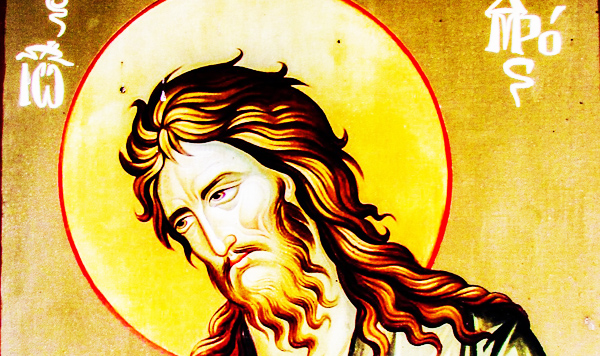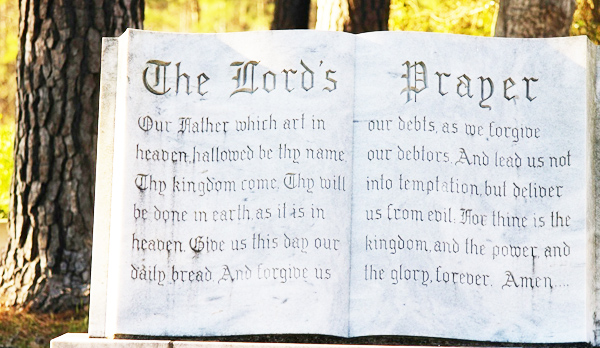Imputation is the act of one person adding something to another person’s account (Genesis 15:6). As believers in Jesus Christ, we have this clear assurance in Scripture: at the cross, our sins were imputed to Christ and Christ’s righteousness was imputed to us. The imputation of sin, as we see in Romans 5:12-15, is the way that God made for us to be saved. Our sin was placed upon Jesus Christ, and his righteousness was given to us, in order that we be saved.
Salvation
We Will Be Changed In a Moment, After a Lifetime of Struggle
Not long ago I lead a study on the doctrine of “Glorification” in a systematic theology series for the Baptist Collegiate Ministry at the University of Cincinnati. I was greatly blessed in considering the eventual, promised perfection of the people of God. Yet I was also impressed all over again with the fact that every aspect of our salvation — including even our glorification — is not ultimately about us, but about God.
Your Salvation: Paid In Full
When Jesus had received the sour wine, he said, “It is finished,” and he bowed his head and gave up his spirit (John 19:30). The phrase Jesus uses here on the cross expressed a business transaction completed: “paid in full.” At the heart of trusting in Jesus Christ for salvation is the confidence that nothing else needs to be added to the price he paid, in his death, for our salvation. Do you live in the reality of a fully-paid salvation each day?
No One Who Abides In Him Keeps On Sinning
No one who abides in him keeps on sinning; no one who keeps on sinning has either seen him or known him (1 John 3:6). This is a sobering passage. It is meant to be. However, it should not be a passage that causes the Christian believer to despair. John is not condemning the one who is seeking to overcome sin, but the one who habitually gives into sin without repenting. John purposefully describes here the one who is (or is not) continually sinning (as is evident from the “linear present”, or continuing action, of the verbs in the original
What Is Salvation, and Where Is It Found?
For by grace you have been saved through faith. And this is not your own doing; it is the gift of God (Ephesians 2:8). Salvation means “to deliver” someone out of danger. Salvation, especially in the Bible, implies then that people need to be saved. It also implies that someone is able and willing to save the person who needs to be saved. The Bible teaches that Jesus Christ is the only source of true salvation for any human being.
What Is Sanctification?
If you are a believer, then you are “sanctified”, you are a saint (same root word). The word sanctification means “to set apart for a particular purpose.” There is no ceremonial act—not even baptism or the Lord’s Supper—which is needed in order to be saved, or sanctified. This may be confusing, however, because the Bible often talks about, even exhorts us to, sanctification as a goal. This is because there is more than one aspect to God’s setting us apart; he sets apart in different ways and for different purposes.
Jesus Says, “I Am the Door”
I am the door. If anyone enters by me, he will be saved and will go in and out and find pasture (John 10:9). It is easy and common to skip over this reference of Jesus to himself as the door and jump straight to him as the shepherd (also in this passage in John 10). But pause and consider that Jesus says he is not only the shepherd of his sheep but he is also the door. In other words, Jesus is not only the shepherd of the sheep, but he is also the way through which he leads
Location, Location, Location
There is therefore now no condemnation for those who are in Christ Jesus (Romans 8:1). There is a well-known real estate maxim that lists the three most important characteristics of any property: “Location, location, and location.” This famous real estate maxim holds true in the Bible, as well. In the Old Testament in particular leaving Israel is seen as departing from God, and returning to Israel represents one’s returning to God.
Crushed For Our Iniquities
He was pierced for our transgressions; he was crushed for our iniquities; upon him was the chastisement that brought us peace, and with his wounds we are healed (Isaiah 53:5). At the heart of the gospel — at the heart of what happened on the cross to Jesus Christ — is substitution. It is Jesus taking the place, and therefore the punishment, of sinners who deserved God’s wrath. At the cross, Jesus got what we deserved. Isaiah 53:5 gives us this clear insight into Jesus’ death.
Why Was the Cross Necessary, Given God’s Omnipotence?
Many people misunderstand the truth of God’s omnipotence — the fact that he has all power. So one might sincerely wonder why the cross of Jesus Christ was necessary. Why didn’t God just waive his omnipotent “wand” and make everything okay without his Son having to die? The key is to remember that, while God has the power to do anything he wishes, what God wants to do is always in accord with the rest of his attributes and character.
Forgive Our Sins
Forgive us our sins (Luke 11:4). (We are continuing in our brief series of meditations on the Lord’s Prayer.) Jesus teaches us to pray daily (see previous post) for the forgiveness of our sins, assuming (as we ought to) that we have strayed from the mark each day. Sins are sins — they are not merely mistakes, flaws, personality, or “my truth versus your truth.” And every sin is against God ultimately, and so must be dealt with before God (Psalm 51:4)
Your Kingdom Come
Your kingdom come (Luke 11:2). In my last post I began a series of brief meditations on the Lord’s Prayer. The prayer begins with the request for God’s name to be hallowed, followed immediately with the prayer for his kingdom to come. When we ask for God’s kingdom to come, we are reminded that not only is God’s name and glory to come first — but also God’s desires, his will, his purposes, and his authority.
Is True Faith an Act of the Will?
True faith is an act of the will, in the sense that God gives us a new will in the new birth, along with faith (John 1:12-13; Ephesians 2:8). God does not make us robots; he successfully woos our hearts. Faith is not merely an act of the will, because it is also the act of the Holy Spirit in our souls, drawing us to Jesus Christ, and bringing us to trust in him as he is revealed in his Word (James 1:18).
I Have Other Sheep
In John 10:16 Jesus says, “I have other sheep that are not of this fold. I must bring them also, and they will listen to my voice. So there will be one flock, one shepherd.” When you hear these words, what is your gut reaction? Are you offended that Jesus is just as concerned about homeless people and third-world gorilla fighters as he is about you? Or do you feel unconcerned for “other” people, because they’re totally different than you, although Jesus loves them also?
Why Fight Sin If Salvation Is Sure?
I discipline my body and keep it under control, lest after preaching to others I myself should be disqualified (1 Corinthians 9:27). Paul, writing to the church at Corinth to correct their problems, confesses that he himself has to be careful to avoid sin. In fact Paul intimates he goes to great lengths — disciplining his body, keeping himself under control — to avoid the pitfalls of willful sin. But why? Did Paul not believe in the perseverance of the saints, or in the eternal security of believers?













